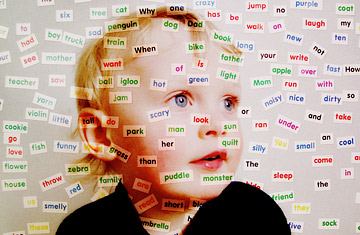
Every parent of a child with autism wonders what might have caused the disorder. Does it secretly run in the family? Was there a toxic exposure during pregnancy? An infection in early infancy? Was the mother or father too old?
Amy Sawelson Landes of Tarzana, Calif., has asked herself all of these questions, plus one more: Could the fact that she had taken an infertility drug to get pregnant have contributed to her son Ted's autism? "It was one of the first things I wondered about," says Landes, who was 37 when Ted was born 18 years ago.
A study presented Wednesday at the International Meeting for Autism Research in Philadelphia provides some of strongest evidence to date that Landes might be onto something. The study, conducted by a team at the Harvard School of Public Health, found that autism was nearly twice as common among the children of women who were treated with the ovulation-inducing drug Clomid and other similar drugs than women who did not suffer from infertility, and the link persisted even after researchers accounted for the women's age.
Moreover, the association between fertility drugs and autism appeared to strengthen with exposure: the longer women reported being treated for infertility, the higher the chances their child had an autism spectrum disorder (ASD).
A second paper presented at the conference by an Israeli team found an association between autism risk and in vitro fertilization, which also involves the use of drugs that stimulate ovulation. Taken together, the studies add to a growing body of evidence that a history of infertility and treatment for infertility could play a role in causing autism. However, the papers raise more questions than they answer.
The Harvard study was the first to look specifically at Clomid-type drugs and autism. It was a large study involving data from 3,985 women — all of them nurses; 111 reported having a child with autism. However the data was based on questionnaires completed by the women, rather than clinical records, so there was no way to confirm the history or timing of treatment for infertility or autism diagnosis. Nor did researchers have access to information on whether the affected children were born prematurely, whether they were twins or triplets, or whether they had low birth weights.
"Preterm delivery, low birth weight, twinning and maternal age are all associated with infertility treatment and they are all associated with the risk of autism. We need to understand how to tease these factors apart," observes Lisa Croen, senior research scientist with Kaiser Permanente in Oakland, Calif., and director of its Autism Research Program, who was not associated with the paper. "This study is addressing a really important question but we really need more data."
The Israeli report on in vitro fertilization (IVF) is also intriguing, but perhaps even more preliminary. The study looked at 564 children with ASD, who had come to an autism center for in-depth evaluation. It found that 10.2% of the children were the product of IVF, much higher than the rate in the general population of Israel, which is 3.5%. Still, it isn't clear to what degree the greater risk of autism might be traceable to confounding factors such as maternal age, premature birth or multiple birth.
IVF has been associated in previous studies with a greater risk of birth malformations, certain genetic defects and developmental problems, including autism. There is also some evidence from animal studies that the growth media used to culture embryos outside the body before implantation may play a role in causing genetic or developmental anomalies. But, again, it's difficult to separate out the intertwined factors of twinning, prematurity and low birth weight that are also associated with autism, and come into play with IVF and other treatments for infertility.
Epidemiologist Kristen Lyall, who led the Harvard study, cautions that even if further research should confirm a link between infertility drugs and autism, any additional treatment-related risk appears to be small: among women whose average age was 35 when they had their first child, there was a 4% risk of having a child with autism for those who had taken fertility drugs, compared with 2% for those with no drug exposure. The increase in risk was even smaller among a younger subset of women.
Still, infertility is a common problem affecting about 10% of American women, many of whom seek drug treatment and interventions such as IVF. "With so many women being exposed, it's important that we understand the associated risks," says Geraldine Dawson, chief scientific officer for Autism Speaks.
